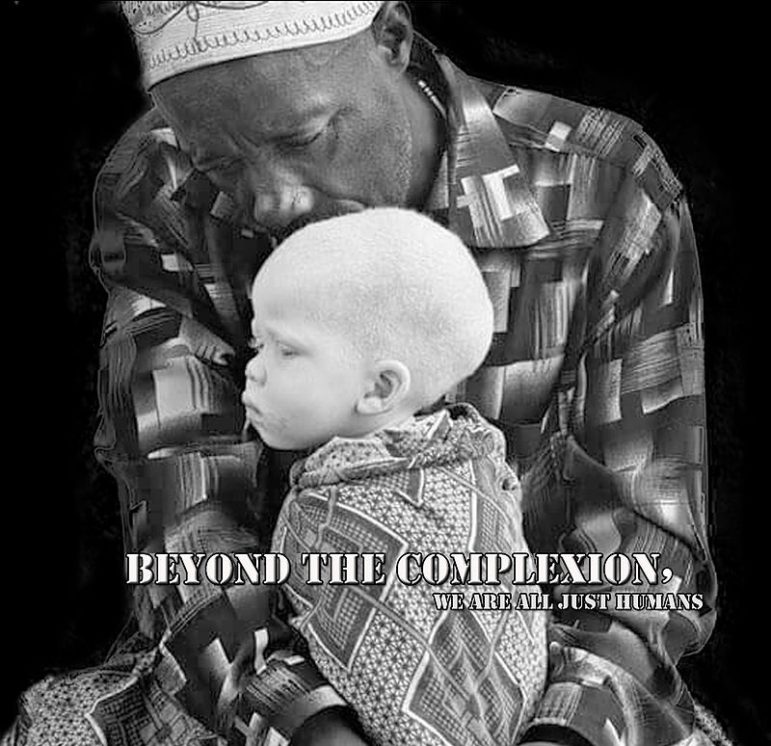
June 7, 2016; CNN
A horror largely foreign to the Western world is unfolding in parts of Africa and elsewhere. On Tuesday, Amnesty International released a new international report detailing the upsurge of violence and discrimination toward individuals with albinism in Malawi, a southern African country. As reported by the UN in April, albinos in Malawi are at risk of extinction should the violence continue.
Albinism is a genetic condition that manifests as the absence of melanin, or pigmentation, in the skin, eyes, and hair. Individuals with albinism in Africa are seen as harboring magical powers in their limbs and body parts, the sale of which has created a gruesome market for “witch doctors” and those who would make good-luck charms and potions from their flesh.
As a result, reported abuses towards albinos in Malawi have risen since November 2014. There have been at least 69 crimes involving albinos since last November; of those crimes, at least 18 were homicides and five others were abductions whose targets remain missing. Several deaths in the last few months have raised alarm and questions regarding what the Malawi government is truly doing to stymie the violence. In April alone, four people, including a two-year-old toddler, were murdered, dismembered, and presumably sold.
As recorded by the report, these crimes also include grave robberies, wherein gangs or individuals raided the graves of albinos and mutilated their bodies. However, given there’s no official state monitoring of these crimes in Malawi, it’s possible these numbers could be higher. While the crimes constitute clear human rights violations, volunteers without the time or capacity to properly document them largely bear the responsibility for tracking them.
Persecution and discrimination against albinos in parts of Africa has been well documented. Malawi is one of 23 countries in Africa, including Tanzania and Mozambique, where superstitious notions and misconceptions about albinism puts individuals at risk daily for bodily harm. Women and children are particularly vulnerable. As noted in Amnesty’s report, men with HIV have raped and infected women with albinism in the belief that their bodies could cure the disease. Individuals with albinism naturally stand out in African countries, with the greatest part of the population having darker skin tones. The stigma and “otherness” of albinism in these countries not only poses bodily harm but social exclusion as well. Individuals with greater melanin are often discouraged from relationships with those with albinism, as families believe the union would curse the family.
Sign up for our free newsletters
Subscribe to NPQ's newsletters to have our top stories delivered directly to your inbox.
By signing up, you agree to our privacy policy and terms of use, and to receive messages from NPQ and our partners.
“People with albinism across the social divide in Malawi endure a life of extreme social exclusion within the family, in the community and the country at large,” says Amnesty’s report. “They face social discrimination as a result of their appearance. For example, children with albinism are made to realize that they are different at an early age. This sense of ‘awareness’ injects long term systemic feelings of inferiority, exclusion and inequality.”
Amnesty interviewed people with albinism and their family members to fully understand the impact of the social persecution. They spoke of suicidal feelings, the pain of exclusion, and the loss of their self-confidence. In interviews, some noted they have withdrawn from society, avoiding going outside to attract attention.
Superstitions about albinism have created a market where some believe body parts from people with albinism will yield significant amounts of money. “Amnesty International believes that in addition to deeply held myths and superstitions about albinism, there are other socioeconomic factors fuelling the violence against them and the trade in body parts,” says the report. “High unemployment, constrained economic growth, entrenched inequality, and grinding poverty set the necessary conditions for harmful beliefs to thrive.”
Amnesty offers several recommendations, some addressing the Malawi government and others directed toward the international community. According to Amnesty, the Malawi police department has lacked the capacity and urgency to fully prosecute or investigate cases, in part due to the stigma of albinism. (For example, in certain cases, perpetrators were charged with “possession of human bones.” Police believed those bones were acquired through grave robberies; instead, Amnesty believes they were acquired through killings, which would merit a more comprehensive investigation and a more significant charge.)
Amnesty International urges the government to seek, as a matter of urgency, international support to conduct investigations, including specialist support for forensic testing and combating human trafficking, in order to bring perpetrators of these gross human rights abuses to justice; in accordance with its regional and international human rights obligations.
In addition to comprehensive investigations, Amnesty also encourages the Malawi government to promote social awareness about albinism and create programs to help meet the medical and psychological needs of individuals with albinism. For example, albinos are at particular at risk for skin cancer, and the government should be providing sunscreen to all individuals and health facilities. However, an international effort may be necessary to help the Malawi government institute these reforms and, perhaps, serve as a progressive model for the governments of other countries where albinism poses significant risk.—Shafaq Hasan













